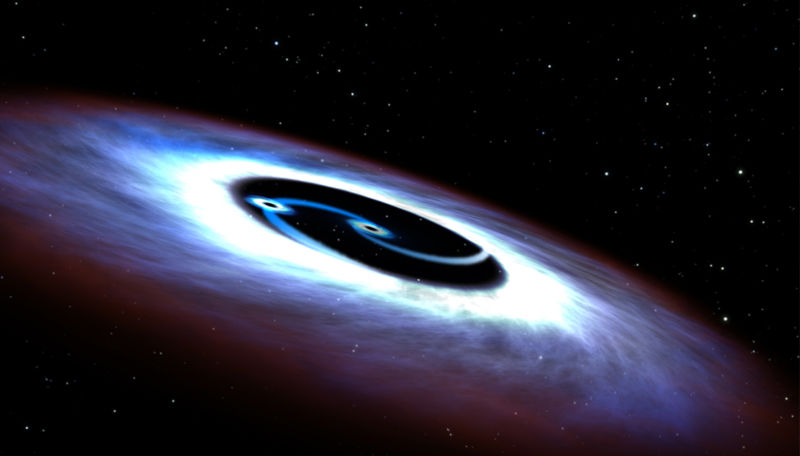Ringing black holes may glow in the dark
Ars Technica 2017-11-08

Ever since LIGO (and now Virgo) started picking up gravitational waves, theorists have gone nuts. The volume of papers on exciting possibilities seems to grow faster than the disk space available to accommodate them. If I were sensible, I would probably ignore them. But I'm not, and you, dear reader, will suffer along with me.
When two black holes collide and merge, they emit gravitational waves, but we don't expect them to emit light. But is that really true? After all, black holes decay away by emitting Hawking radiation, so maybe there is some light associated with the event.
How black are we talking?
Now, it should be pointed out that Hawking radiation, though widely accepted as an inevitable consequence of black hole physics, has never been observed. The problem is that big, long-lived black holes emit tiny amounts of Hawking radiation at very long wavelengths. The low intensity, combined with the long wavelength, makes it pretty much impossible to detect. Tiny, short-lived black holes are much brighter and might be detectable... but, I'm not sure that anyone has any idea how such a black hole might be formed in the present-day Universe. Every black hole we know about is in the large and long-lived bucket.